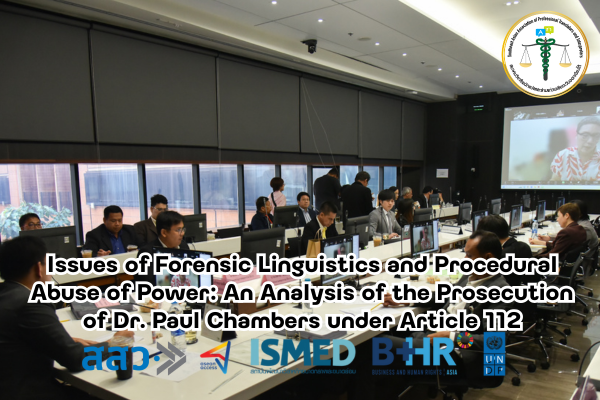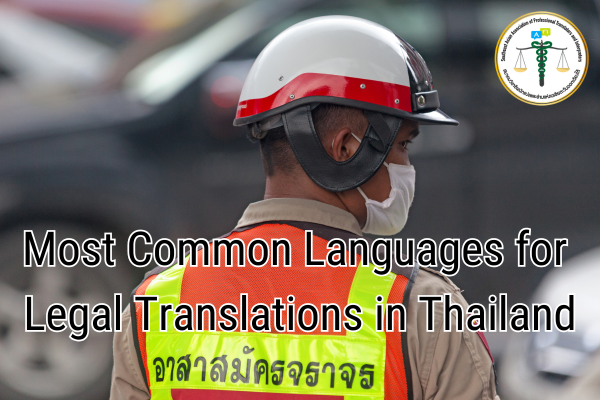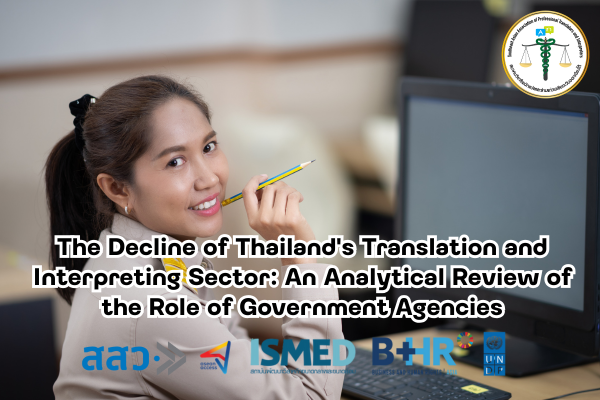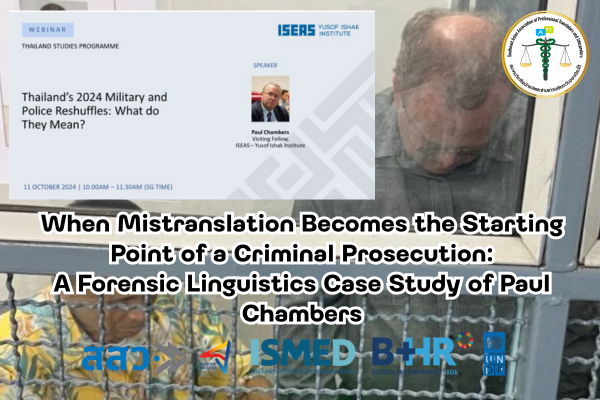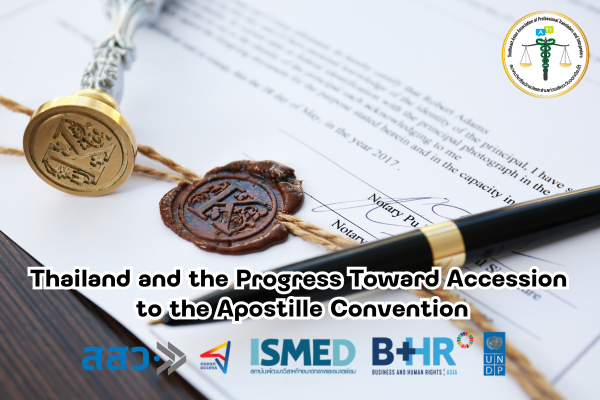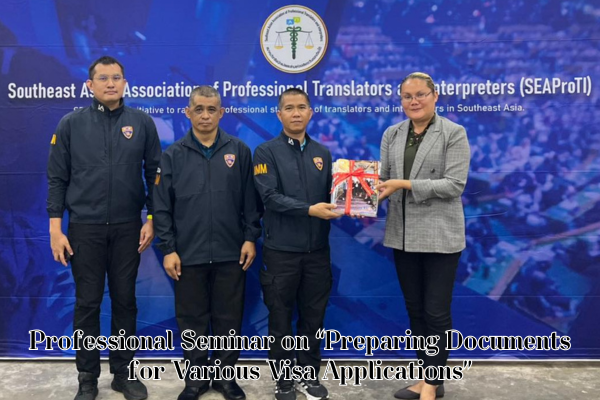Issues of Forensic Linguistics and Procedural Abuse of Power:
An Analysis of the Prosecution of Dr. Paul Chambers under Article 112
Introduction
The justice system in a democratic society rests on the principles of factual accuracy and the legitimate exercise of state power under the law. The case involving the criminal prosecution of Dr. Paul Wesley Chambers, an American professor at Naresuan University, under Article 112 of the Thai Criminal Code by the Third Army Region through the operations of the Internal Security Operations Command (ISOC) Region 3 serves as a case study revealing two critical structural issues: linguistic errors in analyzing and interpreting English-language statements, and the misuse and overreach of state authority beyond legally defined boundaries. This article aims to thoroughly analyze these two issues and propose solutions to enhance transparency and fairness in Thailand’s justice system.
The Importance of Forensic Linguistics in the Justice Process
Forensic linguistics, the study of language within legal contexts, plays a crucial role in analyzing textual evidence in court proceedings. It is particularly important in accurately distinguishing speakers, writers, content, and intent. In this case, the text used to accuse Dr. Chambers was a “blurb” published on the website of the ISEAS–Yusof Ishak Institute, intended merely to promote an upcoming seminar. The content was neither authored by Dr. Chambers nor written from a first-person perspective (“I”), but rather referred to him in the third person (“He”), clearly indicating a separation between the speaker and the writer.
Misinterpreting this text had a direct impact on the criminal charge of lèse-majesté. The failure to differentiate between the “author” and the “subject” of the reference constitutes a violation of the basic standards of forensic linguistic analysis. Moreover, the misunderstanding of the nature of a “blurb”—a short summary promoting future content rather than an opinion piece by the speaker—further illustrates the linguistic incompetence of the preliminary investigative team. Proceeding with a case based on such a linguistic misinterpretation not only violates the rights of the accused but also undermines the credibility of the overall justice process.
In this context, the professional analysis of original documents by legal language experts or trained forensic linguists is essential to prevent legal proceedings based on misunderstandings of language and intent.
Procedural Abuse and Overreach of State Authority
The actions of ISOC Region 3 in filing a criminal complaint against Dr. Chambers also reveal clear procedural and legal violations. Although ISOC invoked its authority under Section 7(1) of the Internal Security Act B.E. 2551 (2008)—allowing it to monitor, inspect, and assess potential threats to internal security—the law also explicitly requires that operations under this section must be approved by the Cabinet beforehand. In this case, there is no evidence of such Cabinet approval.
Furthermore, ISOC Region 3 cited Section 8 of the Act on the Organization of Ministry of Defense Administration B.E. 2551 (2008) to justify its actions, even though ISOC falls under the Prime Minister’s Office, not the Ministry of Defense. Invoking legislation applicable to another agency demonstrates either a serious legal misunderstanding or a deliberate attempt to expand ISOC’s authority beyond what the law allows, constituting a clear breach of the rule of law.
Additionally, initiating criminal proceedings based solely on a Facebook post by a private individual, without thorough independent verification of the facts, highlights a disturbing lack of due diligence. Before the state uses drastic measures such as filing criminal charges, issuing arrest warrants, or revoking visas, a meticulous factual verification process must be in place.
Impact and Urgent Need for Reform
The linguistic errors and procedural flaws in this case have caused personal hardship for Dr. Chambers and his family. They also risk long-term diplomatic consequences, particularly as Thailand navigates trade negotiations with the United States. Rashly pursuing criminal action against a U.S. citizen without sufficient caution jeopardizes Thailand’s international reputation.
Structurally, there is an urgent need to establish stringent linguistic standards for cases involving foreign-language documents. State agencies must either have their own forensic linguists or at minimum, require preliminary linguistic review by legal language experts before any document is used in judicial proceedings. Moreover, ISOC’s procedures must be reformed to prevent unauthorized overreach beyond legally sanctioned limits.
Conclusion
The prosecution of Dr. Paul Chambers under Article 112 clearly demonstrates how misunderstandings in forensic linguistics and procedural missteps can lead to violations of fundamental human rights and undermine public trust in the justice system. If Thailand is to uphold the rule of law, protect human rights, and maintain international credibility, this case must serve as a catalyst for urgent reforms in the areas of legal language analysis and the lawful exercise of state power.
Policy Lessons and Reform Framework Derived from the Prosecution of Dr. Paul Chambers
Policy Lessons
The case highlights critical gaps in public policy and justice system procedures regarding foreign-language documents and internal security measures. Key policy lessons include:
Professional Linguistic Review Requirement in Criminal Cases
Criminal proceedings based on English-language texts must involve professional verification by forensic linguists or expert panels to prevent misinterpretations that could lead to wrongful prosecutions.
Strict Limitation of Security Agencies’ Powers
Laws must clearly delineate which agencies have the authority to act in various situations and establish internal checks and balances within security agencies to prevent unauthorized overreach.
Rigorous Initial Fact-Checking Procedures
Reliance on unverified third-party social media posts is unacceptable. A formalized “fact-checking” protocol must be implemented before any information can be used in legal proceedings.
Diplomatic Impact Assessments Before Prosecuting Foreign Nationals
Legal actions targeting foreign nationals must undergo a policy impact assessment evaluating potential diplomatic and economic consequences before proceeding.
Proposed Reform Framework
To prevent similar incidents in the future, the following reforms are proposed:
- Establishment of a Legal Language and Forensic Linguistics Analysis Center
- A neutral “Center for Legal Language and Forensic Linguistics Analysis” should be created under the Office of the Attorney General or an independent agency to verify all foreign-language documents related to criminal proceedings.
- Amendment of Laws Governing ISOC’s Powers and Procedures
- The Internal Security Act and related regulations should be amended to make it explicit that ISOC lacks the authority to initiate legal proceedings without Cabinet approval.
Implementation of an Evidence Verification Protocol
Security agencies must be prohibited from using social media posts as primary evidence unless verified through formal expert analysis and evidence-gathering procedures.
Mandatory Diplomatic Impact Assessment for Actions Involving Foreign Nationals
Any legal action against foreign nationals must be preceded by a joint review by the Ministry of Foreign Affairs and security agencies to evaluate diplomatic risks.
Strengthening Ethical Training and Accountability for State Officials
Officials involved in criminal procedures must be trained in the principles of the rule of law, human rights, and responsible use of power, with disciplinary measures established for negligent or unlawful conduct.
Conclusion
The prosecution of Dr. Paul Chambers provides a critical lesson for Thailand: without urgent reform of forensic linguistic practices and the lawful exercise of state power, the country risks severe damage to both its internal rule of law and its international standing. Structural reform in these areas is not optional—it is a fundamental necessity for preserving justice and national dignity over the long term.
Footnotes
- Internal Security Act B.E. 2551 (2008), Section 7(1), stipulates ISOC’s role in monitoring and assessing internal security threats and requires Cabinet approval before action.
- See the Organization of Ministry of Defense Administration Act B.E. 2551 (2008), Section 8, regarding the Ministry of Defense’s powers.
- A “blurb” is a short promotional text, not an article or opinion piece by the speaker. See Swales, J. M., & Feak, C. B. (2004). Academic Writing for Graduate Students (2nd ed.). University of Michigan Press.
- Forensic linguistics applies linguistic expertise to analyze disputes and evidence in legal contexts. See Coulthard, M., & Johnson, A. (2010). An Introduction to Forensic Linguistics. Routledge.
- The rule of law principle mandates that state power must be exercised within fair legal boundaries, subject to checks and balances, and protect fundamental rights. See Dicey, A. V. (1959). Introduction to the Study of the Law of the Constitution. Macmillan.
References
- Coulthard, M., & Johnson, A. (2010). An Introduction to Forensic Linguistics: Language in Evidence. Routledge.
- Dicey, A. V. (1959). Introduction to the Study of the Law of the Constitution. Macmillan.
- Internal Security Act B.E. 2551 (2008). Royal Thai Government Gazette.
- Organization of Ministry of Defense Administration Act B.E. 2551 (2008). Royal Thai Government Gazette.
- Swales, J. M., & Feak, C. B. (2004). Academic Writing for Graduate Students (2nd ed.). University of Michigan Press.
SEAProTI’s certified translators, translation certification providers, and certified interpreters:
The Southeast Asian Association of Professional Translators and Interpreters (SEAProTI) has officially announced the criteria and qualifications for individuals to register as “Certified Translators,” “Translation Certification Providers,” and “Certified Interpreters” under the association’s regulations. These guidelines are detailed in Sections 9 and 10 of the Royal Thai Government Gazette, issued by the Secretariat of the Cabinet under the Office of the Prime Minister of the Kingdom of Thailand, dated July 25, 2024, Volume 141, Part 66 Ng, Page 100.
To read the full publication, visit: the Royal Thai Government Gazette
ปัญหานิติภาษาศาสตร์และการใช้อำนาจผิดขั้นตอน: บทวิเคราะห์กรณีการดำเนินคดี มาตรา 112 ต่อ ดร.พอล แชมเบอร์ส
บทนำ
กระบวนการยุติธรรมในสังคมประชาธิปไตยตั้งอยู่บนหลักความถูกต้องแม่นยำของข้อเท็จจริงและการใช้อำนาจรัฐอย่างชอบธรรมตามกฎหมาย กรณีการแจ้งความดำเนินคดีตามประมวลกฎหมายอาญา มาตรา 112 ต่อ ดร.พอล เวสลีย์ แชมเบอร์ส อาจารย์ชาวสหรัฐอเมริกาแห่งมหาวิทยาลัยนเรศวร โดยกองทัพภาคที่ 3 ผ่านการดำเนินงานของกองอำนวยการรักษาความมั่นคงภายในราชอาณาจักร (กอ.รมน.) ภาค 3 เป็นกรณีศึกษาที่สะท้อนถึงปัญหาเชิงโครงสร้างในสองประเด็นสำคัญ นั่นคือ ความผิดพลาดด้านนิติภาษาศาสตร์ในการวิเคราะห์และตีความข้อความภาษาอังกฤษ และการใช้อำนาจรัฐโดยผิดขั้นตอนและเกินขอบเขตที่กฎหมายกำหนด บทความนี้มีจุดมุ่งหมายเพื่อวิเคราะห์สองประเด็นดังกล่าวโดยละเอียด และเสนอแนวทางแก้ไขเพื่อเสริมสร้างความโปร่งใสและความเป็นธรรมในกระบวนการยุติธรรมของไทย
ความสำคัญของนิติภาษาศาสตร์ในกระบวนการยุติธรรม
นิติภาษาศาสตร์ (forensic linguistics) เป็นศาสตร์ที่ศึกษาภาษาในบริบททางกฎหมาย มีบทบาทสำคัญในการวิเคราะห์ข้อความที่ใช้เป็นหลักฐานในกระบวนการพิจารณาคดี โดยเฉพาะการแยกแยะผู้พูด ผู้เขียน เนื้อหา และเจตนารมณ์ของข้อความอย่างแม่นยำ ในกรณีนี้ ข้อความต้นเรื่องที่ใช้กล่าวหา ดร.พอล เป็น “คำโปรย” บนเว็บไซต์ของ ISEAS-Yusof Ishak Institute ซึ่งจัดขึ้นเพื่อประชาสัมพันธ์งานเสวนาในอนาคต โดยเนื้อหาดังกล่าวไม่ได้ถูกเขียนโดย ดร.พอล และยังปรากฏการใช้สรรพนามบุรุษที่สาม (“He”) แทนการใช้บุรุษที่หนึ่ง (“I”) ซึ่งบ่งชี้อย่างชัดเจนถึงการแยกตัวของผู้เขียนและผู้พูด
ความผิดพลาดในการตีความข้อความนี้ มีผลโดยตรงต่อการดำเนินคดีในข้อหาหมิ่นสถาบันพระมหากษัตริย์ การไม่แยกแยะระหว่าง “ผู้เขียน” กับ “ผู้ถูกอ้างถึง” เป็นการละเลยมาตรฐานขั้นต่ำของการวิเคราะห์ข้อความทางนิติภาษาศาสตร์ นอกจากนี้ ความไม่เข้าใจในธรรมชาติของ “คำโปรย” ซึ่งมีหน้าที่เพียงสรุปเนื้อหาที่จะนำเสนอในอนาคต ไม่ใช่ข้อเขียนเชิงทัศนะของวิทยากร ยิ่งตอกย้ำถึงการขาดความเชี่ยวชาญทางภาษาของผู้ดำเนินการสืบสวนเบื้องต้น การดำเนินคดีบนฐานของความเข้าใจผิดเช่นนี้ไม่เพียงละเมิดสิทธิของผู้ถูกกล่าวหา แต่ยังบ่อนทำลายความน่าเชื่อถือของกระบวนการยุติธรรมโดยรวม
ในบริบทนี้ การวิเคราะห์เอกสารต้นฉบับโดยนักภาษากฎหมายหรือนิติภาษาศาสตร์มืออาชีพจึงเป็นสิ่งจำเป็นอย่างยิ่ง เพื่อป้องกันมิให้เกิดการดำเนินคดีที่ตั้งอยู่บนรากฐานของความเข้าใจผิดทางภาษาและเจตนา
การใช้อำนาจรัฐผิดขั้นตอนและเกินขอบเขต
การดำเนินการของ กอ.รมน. ภาค 3 ในการแจ้งความดำเนินคดีกับ ดร.พอล ยังสะท้อนถึงปัญหาการใช้อำนาจผิดขั้นตอนตามกฎหมายอย่างชัดเจน แม้ว่ากอ.รมน.จะอ้างอิงอำนาจตามพระราชบัญญัติการรักษาความมั่นคงภายในราชอาณาจักร พ.ศ. 2551 มาตรา 7 (1) ซึ่งให้อำนาจในการติดตาม ตรวจสอบ และประเมินแนวโน้มสถานการณ์ที่อาจก่อให้เกิดภัยคุกคามต่อความมั่นคงภายในราชอาณาจักร แต่กฎหมายก็กำหนดเงื่อนไขชัดเจนว่าต้องนำเสนอเรื่องเข้าสู่การพิจารณาของคณะรัฐมนตรีเพื่อขออนุมัติก่อนดำเนินการ ในกรณีนี้ ไม่มีหลักฐานว่ามีการขออนุมัติจากคณะรัฐมนตรีแต่อย่างใด
ยิ่งไปกว่านั้น กอ.รมน.ภาค 3 ยังอ้างอำนาจตามพระราชบัญญัติจัดระเบียบราชการกระทรวงกลาโหม พ.ศ. 2551 มาตรา 8 เพื่อสนับสนุนการดำเนินการของตน ทั้งที่ตามโครงสร้างการปกครอง กอ.รมน.อยู่ภายใต้สำนักนายกรัฐมนตรี มิใช่กระทรวงกลาโหม การนำกฎหมายที่ใช้บังคับกับหน่วยงานอื่นมาอ้างในการดำเนินคดีเช่นนี้ แสดงถึงความเข้าใจผิดหรือความพยายามขยายขอบเขตอำนาจเกินกว่าที่กฎหมายบัญญัติไว้ เป็นการละเมิดหลักนิติรัฐอย่างชัดเจน
นอกจากนี้ การตั้งต้นดำเนินคดีจากโพสต์เฟซบุ๊กของบุคคลภายนอก โดยไม่มีการตรวจสอบความน่าเชื่อถือของเนื้อหาด้วยตนเองอย่างรัดกุม ยิ่งตอกย้ำถึงการขาดความรอบคอบที่พึงมีในกระบวนการตรวจสอบข้อเท็จจริงเบื้องต้น ก่อนที่รัฐจะใช้มาตรการลิดรอนสิทธิของบุคคลอย่างร้ายแรง เช่น การแจ้งข้อหาอาญา การขอออกหมายจับ หรือการเพิกถอนวีซ่า
ผลกระทบและความจำเป็นเร่งด่วนในการปฏิรูป
ความผิดพลาดเชิงภาษาศาสตร์และความบกพร่องเชิงกระบวนการในกรณีนี้ ไม่เพียงแต่สร้างความเดือดร้อนแก่ ดร.พอล และครอบครัว แต่ยังมีแนวโน้มที่จะสร้างผลกระทบระยะยาวต่อความสัมพันธ์ระหว่างประเทศ โดยเฉพาะอย่างยิ่งในช่วงเวลาที่ไทยมีประเด็นทางการค้ากับสหรัฐอเมริกาในเรื่องกำแพงภาษี การเร่งรัดดำเนินคดีกับพลเมืองสหรัฐฯ โดยไม่มีความละเอียดรอบคอบที่เพียงพอ ย่อมสุ่มเสี่ยงที่จะกระทบภาพลักษณ์ของประเทศไทยในสายตานานาชาติ
ในระดับโครงสร้าง จำเป็นต้องมีการกำหนดมาตรฐานทางภาษาศาสตร์สำหรับการดำเนินคดีที่เกี่ยวข้องกับเอกสารภาษาต่างประเทศอย่างเคร่งครัด หน่วยงานรัฐควรมีผู้เชี่ยวชาญด้านนิติภาษาศาสตร์ หรืออย่างน้อย ต้องผ่านการตรวจสอบเบื้องต้นจากนักภาษาที่มีความเข้าใจทางกฎหมายก่อนนำไปใช้ในกระบวนการยุติธรรม นอกจากนี้ จำเป็นต้องทบทวนกระบวนการใช้อำนาจของหน่วยงานด้านความมั่นคง เพื่อป้องกันการตีความขยายอำนาจโดยไม่มีหลักกฎหมายรองรับ
สรุป
กรณีการดำเนินคดีมาตรา 112 ต่อ ดร.พอล แชมเบอร์ส เป็นตัวอย่างที่ชัดเจนของผลกระทบที่เกิดจากการขาดความเข้าใจในศาสตร์นิติภาษาศาสตร์ และการใช้กระบวนการทางกฎหมายอย่างผิดขั้นตอน อันนำไปสู่การละเมิดสิทธิขั้นพื้นฐานของบุคคล และสร้างความเสียหายต่อความน่าเชื่อถือของกระบวนการยุติธรรมโดยรวม หากประเทศไทยต้องการธำรงไว้ซึ่งหลักนิติรัฐ หลักความยุติธรรม และการคุ้มครองสิทธิมนุษยชนอย่างแท้จริง กรณีนี้ควรถูกใช้เป็นบทเรียนในการเร่งปฏิรูปการวิเคราะห์ภาษาทางกฎหมาย และการใช้อำนาจรัฐให้สอดคล้องกับหลักนิติธรรมในทุกขั้นตอน
บทเรียนทางนโยบายและกรอบเสนอการปฏิรูปจากกรณีการดำเนินคดีต่อ ดร.พอล แชมเบอร์ส
บทเรียนทางนโยบาย
กรณี ดร.พอล แชมเบอร์ส ชี้ให้เห็นถึงช่องโหว่สำคัญในนโยบายภาครัฐและการดำเนินกระบวนการยุติธรรมที่เกี่ยวข้องกับเอกสารภาษาต่างประเทศและการใช้มาตรการด้านความมั่นคงภายใน บทเรียนสำคัญที่สามารถสรุปได้ มีดังนี้
1. ความจำเป็นในการตรวจสอบภาษาอย่างมืออาชีพในคดีอาญา
การดำเนินคดีที่อาศัยข้อความภาษาอังกฤษเป็นหลักฐาน ต้องมีระบบการตรวจสอบข้อความโดยผู้เชี่ยวชาญเฉพาะทาง เช่น นักนิติภาษาศาสตร์ หรือคณะผู้เชี่ยวชาญด้านการวิเคราะห์เอกสารทางกฎหมาย เพื่อป้องกันความเสี่ยงจากการตีความผิดพลาดที่อาจนำไปสู่การฟ้องร้องโดยมิชอบ
2. การจำกัดขอบเขตอำนาจของหน่วยงานด้านความมั่นคง
กฎหมายต้องมีข้อกำหนดชัดเจนว่า หน่วยงานใดมีอำนาจดำเนินการในสถานการณ์ใด และต้องสร้างระบบตรวจสอบถ่วงดุลภายในหน่วยงานความมั่นคงให้มีประสิทธิภาพ เพื่อป้องกันการขยายขอบเขตอำนาจเกินกว่าที่กฎหมายอนุญาต
3. ความจำเป็นในการกลั่นกรองข้อมูลเบื้องต้นอย่างรัดกุม
การอ้างข้อมูลจากโพสต์ของบุคคลที่สามโดยปราศจากการตรวจสอบข้อเท็จจริงอย่างรัดกุม ถือเป็นการดำเนินการที่ขาดมาตรฐานอาชีพ ส่งผลเสียต่อทั้งผู้ถูกกล่าวหาและหน่วยงานรัฐเอง รัฐควรมีกระบวนการ “fact-checking” อย่างเป็นทางการก่อนการใช้ข้อมูลใดในกระบวนการดำเนินคดี
4. ผลกระทบทางการทูตจากการดำเนินคดีที่ไม่รัดกุม
การดำเนินคดีกับพลเมืองต่างชาติอย่างไม่ระมัดระวัง โดยเฉพาะในประเด็นละเอียดอ่อน เช่น กฎหมายหมิ่นพระบรมเดชานุภาพ สามารถส่งผลกระทบต่อภาพลักษณ์ของประเทศไทยในระดับระหว่างประเทศ และความสัมพันธ์ทางการค้าหรือการทูตในระยะยาว จึงจำเป็นต้องมีการประเมินผลกระทบเชิงนโยบาย (Policy Impact Assessment) ก่อนการดำเนินการ
กรอบเสนอการปฏิรูป (Proposed Reform Framework)
เพื่อป้องกันไม่ให้เหตุการณ์เช่นนี้เกิดขึ้นซ้ำอีกในอนาคต จึงจำเป็นต้องเสนอการปฏิรูปในหลายมิติ ดังนี้
1. จัดตั้งหน่วยงานตรวจสอบทางภาษาในกระบวนการยุติธรรม
ควรมีการจัดตั้ง “ศูนย์วิเคราะห์ภาษากฎหมายและนิติภาษาศาสตร์” ภายใต้สำนักงานอัยการสูงสุด หรือหน่วยงานอิสระที่มีความเป็นกลาง เพื่อทำหน้าที่วิเคราะห์เอกสารต่างประเทศทุกฉบับที่เกี่ยวข้องกับคดีความ ก่อนการดำเนินคดีอาญา
2. แก้ไขกฎหมายให้ชัดเจนเรื่องอำนาจและขั้นตอนของ กอ.รมน.
กฎหมายว่าด้วยการรักษาความมั่นคงภายในราชอาณาจักร และระเบียบที่เกี่ยวข้อง ควรถูกแก้ไขให้ระบุชัดเจนว่า กอ.รมน.ไม่มีอำนาจดำเนินคดีหรือนำข้อมูลเข้าสู่กระบวนการยุติธรรมโดยตรง เว้นแต่ผ่านกระบวนการตรวจสอบและอนุมัติจากคณะรัฐมนตรีตามขั้นตอน
3. สร้างมาตรฐานการตรวจสอบข้อมูลก่อนดำเนินคดี (Evidence Verification Protocol)
หน่วยงานความมั่นคงต้องมีกระบวนการกลั่นกรองข้อมูลที่ได้รับจากสื่อโซเชียลมีเดียอย่างเคร่งครัด ต้องมีข้อกำหนดว่าไม่สามารถใช้โพสต์จากบุคคลทั่วไปเป็นหลักฐานเบื้องต้นในการกล่าวหาได้ เว้นแต่มีการตรวจสอบจากผู้เชี่ยวชาญและกระบวนการรวบรวมพยานหลักฐานที่เป็นทางการ
4. บังคับใช้การประเมินผลกระทบทางการทูตก่อนดำเนินการต่อชาวต่างชาติ
ในกรณีการดำเนินคดีหรือมาตรการที่มีเป้าหมายต่อพลเมืองต่างชาติ ต้องมีการจัดทำรายงานประเมินผลกระทบทางการทูตและเศรษฐกิจก่อน เพื่อให้กระทรวงการต่างประเทศและหน่วยงานความมั่นคงร่วมกันพิจารณาผลได้ผลเสียอย่างรอบด้าน
5. เสริมสร้างจริยธรรมและความรับผิดชอบของเจ้าหน้าที่รัฐ
ต้องมีการอบรมเจ้าหน้าที่ที่เกี่ยวข้องกับการดำเนินคดีให้ตระหนักถึงหลักการของนิติรัฐ สิทธิมนุษยชน และความสำคัญของความรับผิดชอบต่อผลกระทบจากการใช้อำนาจรัฐโดยมิชอบ รวมถึงการกำหนดบทลงโทษต่อเจ้าหน้าที่ที่ดำเนินการโดยประมาทเลินเล่อหรือโดยมิชอบ
สรุป
กรณีการดำเนินคดีต่อ ดร.พอล แชมเบอร์ส เป็นบทเรียนสำคัญที่สังคมไทยต้องนำมาใช้เพื่อขับเคลื่อนการปฏิรูปกระบวนการยุติธรรมและการใช้อำนาจรัฐในประเด็นที่เกี่ยวข้องกับภาษาและความมั่นคงภายในอย่างเร่งด่วน หากไม่เร่งดำเนินการ ประเทศไทยเสี่ยงต่อการถูกวิพากษ์วิจารณ์ในระดับนานาชาติอย่างหนัก และการบ่อนทำลายหลักนิติรัฐจากภายในอย่างไม่มีทางหลีกเลี่ยง การปฏิรูปเชิงโครงสร้างในประเด็นเหล่านี้ จึงมิใช่เพียงทางเลือก แต่เป็นความจำเป็นขั้นพื้นฐานของการรักษาความยุติธรรมและเกียรติภูมิของประเทศในระยะยาว
เชิงอรรถ (Footnotes)
- พระราชบัญญัติการรักษาความมั่นคงภายในราชอาณาจักร พ.ศ. 2551, มาตรา 7 (1) กำหนดให้ กอ.รมน. มีหน้าที่ติดตาม ตรวจสอบ และประเมินแนวโน้มของสถานการณ์ที่อาจก่อให้เกิดภัยคุกคามด้านความมั่นคงภายในราชอาณาจักร และต้องรายงานคณะรัฐมนตรีเพื่อพิจารณาดำเนินการต่อไป
- ดู พระราชบัญญัติจัดระเบียบราชการกระทรวงกลาโหม พ.ศ. 2551, มาตรา 8 ว่าด้วยอำนาจหน้าที่ของกระทรวงกลาโหม
- คำโปรย (blurb) หมายถึงข้อความสั้น ๆ ที่ใช้แนะนำเนื้อหาของงานเสวนา หนังสือ หรือบทความ ไม่ใช่ตัวบทความหรือเนื้อหาหลักที่ผู้พูดหรือผู้เขียนจัดทำเอง ดูเพิ่มเติมที่: Swales, J. M., & Feak, C. B. (2004). Academic Writing for Graduate Students: Essential Tasks and Skills (2nd ed.). University of Michigan Press.
- Forensic linguistics เป็นการประยุกต์ศาสตร์ทางภาษาศาสตร์เพื่อการวิเคราะห์ข้อพิพาทหรือหลักฐานในทางกฎหมายอย่างมืออาชีพ รายละเอียดเพิ่มเติมดู Coulthard, M., & Johnson, A. (2010). An Introduction to Forensic Linguistics: Language in Evidence. Routledge.
- หลักนิติรัฐ (Rule of Law) หมายถึงหลักการที่ว่า การใช้อำนาจรัฐต้องอยู่ภายใต้กฎหมายที่เป็นธรรม มีการตรวจสอบถ่วงดุล และคุ้มครองสิทธิมนุษยชนขั้นพื้นฐาน ดูเพิ่มเติมใน Dicey, A. V. (1959). Introduction to the Study of the Law of the Constitution. Macmillan.
เอกสารอ้างอิง (References)
- Coulthard, M., & Johnson, A. (2010). An Introduction to Forensic Linguistics: Language in Evidence. Routledge.
- Dicey, A. V. (1959). Introduction to the Study of the Law of the Constitution. Macmillan.
- พระราชบัญญัติการรักษาความมั่นคงภายในราชอาณาจักร พ.ศ. 2551. ราชกิจจานุเบกษา.
- พระราชบัญญัติจัดระเบียบราชการกระทรวงกลาโหม พ.ศ. 2551. ราชกิจจานุเบกษา.
- Swales, J. M., & Feak, C. B. (2004). Academic Writing for Graduate Students: Essential Tasks and Skills (2nd ed.). University of Michigan Press.
เกี่ยวกับนักแปลรับรอง ผู้รับรองการแปล และล่ามรับรองของสมาคมวิชาชีพนักแปลและล่ามแห่งเอเชียตะวันออกเฉียงใต้
สมาคมวิชาชีพนักแปลและล่ามแห่งเอเชียตะวันออกเฉียงใต้ (SEAProTI) ได้ประกาศหลักเกณฑ์และคุณสมบัติผู้ที่ขึ้นทะเบียนเป็น “นักแปลรับรอง (Certified Translators) และผู้รับรองการแปล (Translation Certification Providers) และล่ามรับรอง (Certified Interpreters)” ของสมาคม หมวดที่ 9 และหมวดที่ 10 ในราชกิจจานุเบกษา ของสำนักเลขาธิการคณะรัฐมนตรี ในสำนักนายกรัฐมนตรี แห่งราชอาณาจักรไทย ลงวันที่ 25 ก.ค. 2567 เล่มที่ 141 ตอนที่ 66 ง หน้า 100 อ่านฉบับเต็มได้ที่: นักแปลรับรอง ผู้รับรองการแปล และล่ามรับรอง


